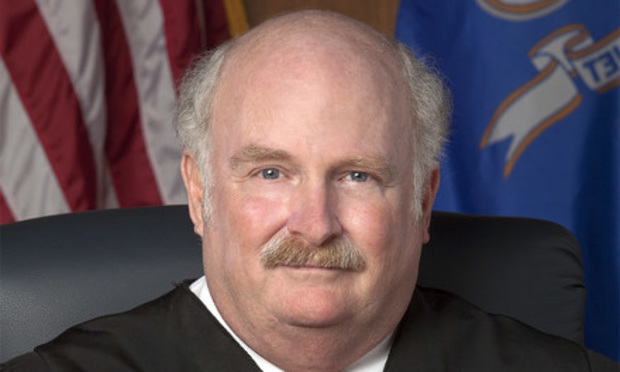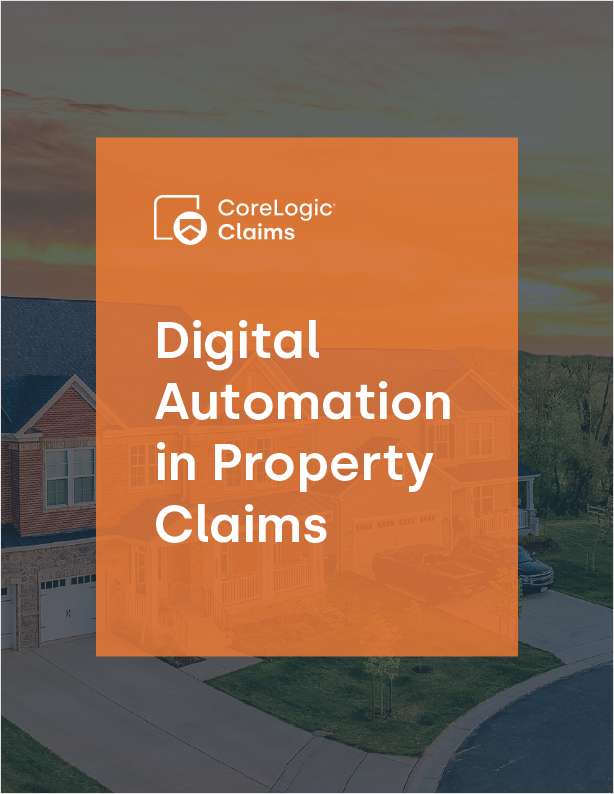Judge Sheldon Talks About His Relationship With Russia's Legal Community
Connecticut Appellate Court Judge Michael Sheldon has been an advocate for American and Russian lawyers and judges working together.
October 03, 2018 at 03:07 PM
4 minute read
 Judge Michael Sheldon, Connecticut Appellate Court/courtesy photo
Judge Michael Sheldon, Connecticut Appellate Court/courtesy photo
Editor's note: This profile of Connecticut Appellate Court Judge Michael Sheldon is the ninth in a series of interviews with judges and recently retired jurists.
Growing up in Schenectady, New York, in the 1960s, the last thing Michael Sheldon wanted to become was a lawyer—let alone a judge.
Sheldon, who today sits on the Connecticut Appellate Court, was interested in a lot of things growing up. Those interests included getting directly involved in the protests of the day, such as fighting apartheid in South Africa, fighting for women's rights or for civil rights. Sheldon, now 69 years old, also had an interest in political science, and had dreamed of being an astrophysicist.
Sheldon also had a fascination with Russia and its people, especially since it was the height of the Cold War. He studied Russian in high school and then again at Princeton University, where his specialty was Russian studies and international affairs.
“I studied the language early on and I was pretty good at it,” Sheldon said.
Sheldon later won a grant to study in a summer program in the Soviet Union through the University of Michigan. He would spent 30 days there at age 20. He fell in love with the country and devoted his life to traveling there. Most notably, he went there as vice chairman of the Connecticut-Pskov Rule of Law Project, a partnership of sorts with lawyers and judges in Pskov, a city in western Russia, near the boarder with Estonia, a 12-hour train ride from Moscow. He held the role of vice chairman from 2003-2013, when money for the trips ran out.
“I thought a wonderful thing to do in my life would be to humanize the face of Russia for Americans,” he said.
Sheldon was a law professor at the University of Connecticut from 1976 until he was named to the Connecticut Superior Court in 1991. He was promoted to the Connecticut Appellate Court in 2011.
Through it all, Sheldon kept a connection with the country. In 1979, he spent three weeks there meeting with the country's top judges, lawyers and legal minds.
“We saw many Russian courts and plenty of attractions,” he said. “It was an opportunity to meet with Russians who were, in essence, our colleagues and in positions comparable to our own.”
Those relationships forged in the 1970s, '80s and '90s, remain today, Sheldon said.
From 1990 through 2000, Sheldon also helped run an exchange program between the school system in Canton and a section of Moscow. It was a student/teacher exchange, and Canton students went to Russia every year of the program. Meanwhile, Sheldon had Russian visitors staying in his home.
The pinnacle of his Russian experience came in 2003 when Sheldon was named vice chairman of the Connecticut-Pskov Rule of Law Project. In that role, Sheldon organized and participated in teaching at annual educational seminars for Russian judges, prosecutors and defense lawyers.
“They were approaching the process of starting jury trials and updating their system of justice,” Sheldon noted. “They were experimenting with things like plea bargaining. We learned from each other.”
The chairman of the law project was now-retired Judge Jonathan Silbert. Silbert was Sheldon's professor at Yale Law School in 1974.
“Most teachers have this feeling that, at one point in their life, there will be that one person who is at least 10 times smarter than I am. Michael was that person. He is brilliant, has a photographic memory and is a joy to be around.” The two remained closed friends and decided to start the law project together.
Even though the money for the trips ran out and the law project disbanded several years ago, the trips to Russia continue, as do the friendships.
Sheldon was last in Russia in 2016 and plans on returning next year.
“Jonathan and I will be traveling there to make sure that our friends understand that, regardless of what is going on politically with the two countries, that the underlying friendships formed were real and substantial and are continuing.”
Related Stories:
From the Stage to the Bench: Judge James Abrams Talks Acting and Transitioning Back to the Courtroom
Judge Elizabeth Bozzuto Talks Family Court, Her Heroes and Transitioning to a New Role
This content has been archived. It is available through our partners, LexisNexis® and Bloomberg Law.
To view this content, please continue to their sites.
Not a Lexis Subscriber?
Subscribe Now
Not a Bloomberg Law Subscriber?
Subscribe Now
NOT FOR REPRINT
© 2025 ALM Global, LLC, All Rights Reserved. Request academic re-use from www.copyright.com. All other uses, submit a request to [email protected]. For more information visit Asset & Logo Licensing.
You Might Like
View All
Preparing for Change? These Leaders Have Already Done It. Plus, Managing Partner Survey Results
8 minute read
A Conversation with NLJ Lifetime Achievement Award Winner Jeh Johnson


Trending Stories
- 1How Alzheimer’s and Other Cognitive Diseases Affect Guardianship, POAs and Estate Planning
- 2How Lower Courts Are Interpreting Justices' Decision in 'Muldrow v. City of St. Louis'
- 3Phantom Income/Retained Earnings and the Potential for Inflated Support
- 4Should a Financially Dependent Child Who Rejects One Parent Still Be Emancipated?
- 5Advising Clients on Special Needs Trusts
Who Got The Work
J. Brugh Lower of Gibbons has entered an appearance for industrial equipment supplier Devco Corporation in a pending trademark infringement lawsuit. The suit, accusing the defendant of selling knock-off Graco products, was filed Dec. 18 in New Jersey District Court by Rivkin Radler on behalf of Graco Inc. and Graco Minnesota. The case, assigned to U.S. District Judge Zahid N. Quraishi, is 3:24-cv-11294, Graco Inc. et al v. Devco Corporation.
Who Got The Work
Rebecca Maller-Stein and Kent A. Yalowitz of Arnold & Porter Kaye Scholer have entered their appearances for Hanaco Venture Capital and its executives, Lior Prosor and David Frankel, in a pending securities lawsuit. The action, filed on Dec. 24 in New York Southern District Court by Zell, Aron & Co. on behalf of Goldeneye Advisors, accuses the defendants of negligently and fraudulently managing the plaintiff's $1 million investment. The case, assigned to U.S. District Judge Vernon S. Broderick, is 1:24-cv-09918, Goldeneye Advisors, LLC v. Hanaco Venture Capital, Ltd. et al.
Who Got The Work
Attorneys from A&O Shearman has stepped in as defense counsel for Toronto-Dominion Bank and other defendants in a pending securities class action. The suit, filed Dec. 11 in New York Southern District Court by Bleichmar Fonti & Auld, accuses the defendants of concealing the bank's 'pervasive' deficiencies in regards to its compliance with the Bank Secrecy Act and the quality of its anti-money laundering controls. The case, assigned to U.S. District Judge Arun Subramanian, is 1:24-cv-09445, Gonzalez v. The Toronto-Dominion Bank et al.
Who Got The Work
Crown Castle International, a Pennsylvania company providing shared communications infrastructure, has turned to Luke D. Wolf of Gordon Rees Scully Mansukhani to fend off a pending breach-of-contract lawsuit. The court action, filed Nov. 25 in Michigan Eastern District Court by Hooper Hathaway PC on behalf of The Town Residences LLC, accuses Crown Castle of failing to transfer approximately $30,000 in utility payments from T-Mobile in breach of a roof-top lease and assignment agreement. The case, assigned to U.S. District Judge Susan K. Declercq, is 2:24-cv-13131, The Town Residences LLC v. T-Mobile US, Inc. et al.
Who Got The Work
Wilfred P. Coronato and Daniel M. Schwartz of McCarter & English have stepped in as defense counsel to Electrolux Home Products Inc. in a pending product liability lawsuit. The court action, filed Nov. 26 in New York Eastern District Court by Poulos Lopiccolo PC and Nagel Rice LLP on behalf of David Stern, alleges that the defendant's refrigerators’ drawers and shelving repeatedly break and fall apart within months after purchase. The case, assigned to U.S. District Judge Joan M. Azrack, is 2:24-cv-08204, Stern v. Electrolux Home Products, Inc.
Featured Firms
Law Offices of Gary Martin Hays & Associates, P.C.
(470) 294-1674
Law Offices of Mark E. Salomone
(857) 444-6468
Smith & Hassler
(713) 739-1250










